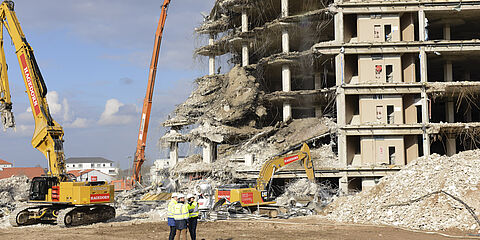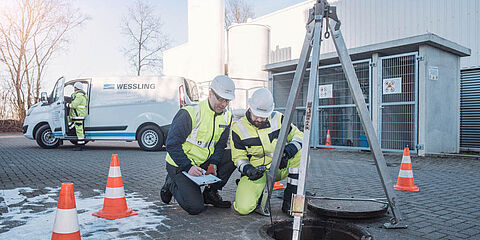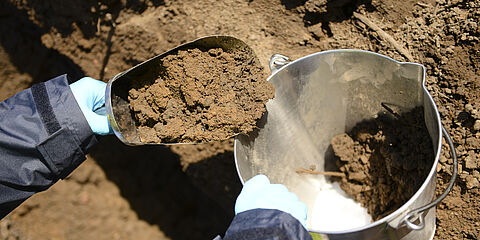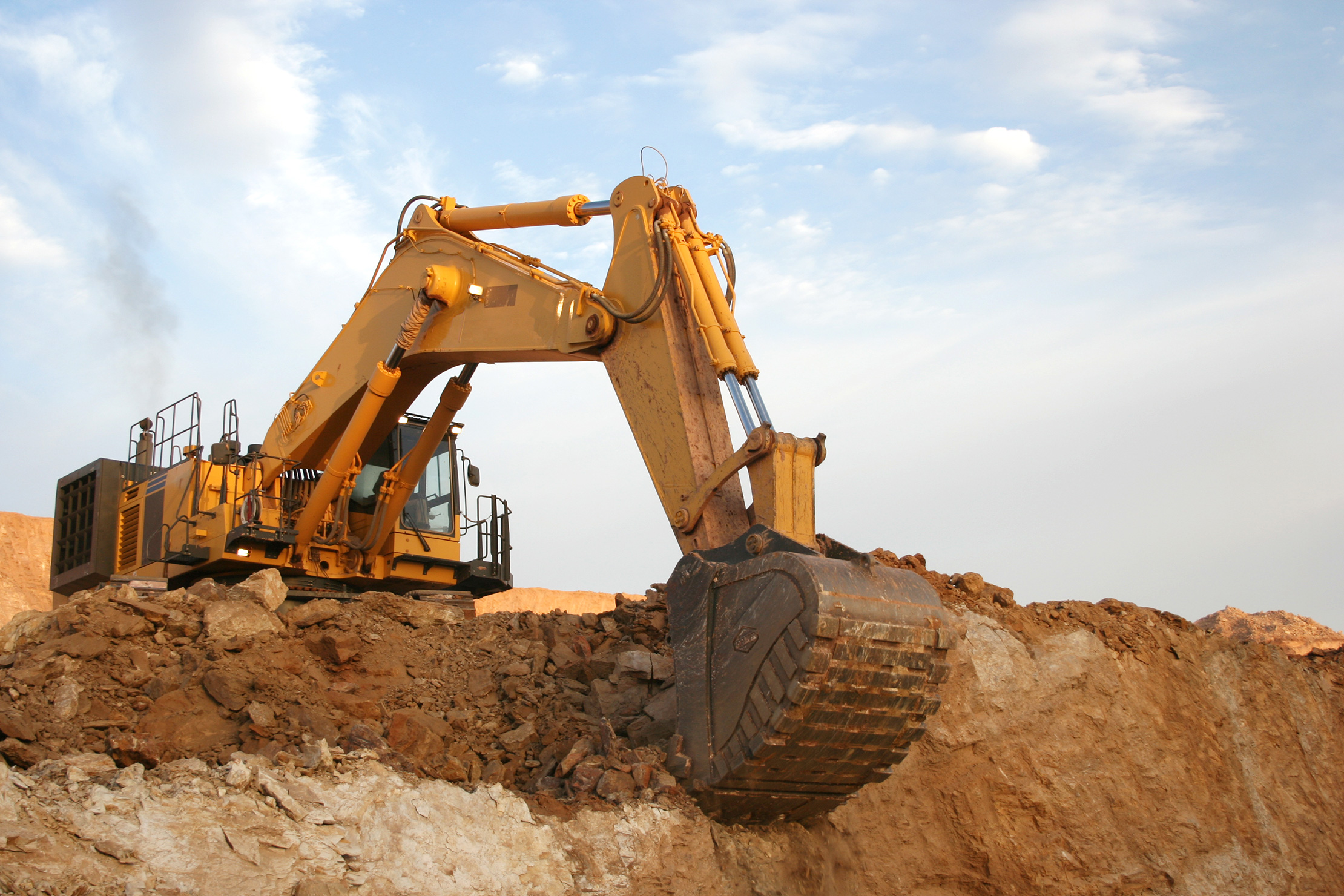IED baseline reports and report for site closure
The Industrial Emissions Directive (IED) stipulates the obligation for operators of IED plants to prepare a "baseline report" (BR).
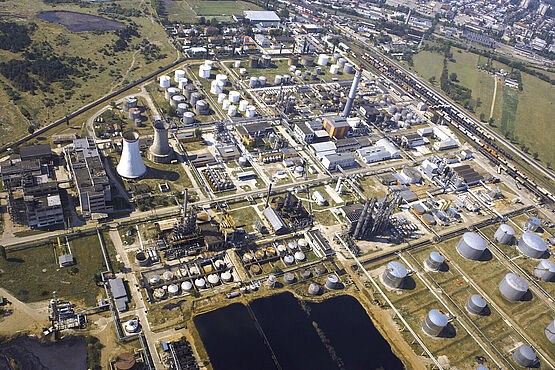
When an industrial plant is to terminate operation, operators of IED plants must, in certain cases, return their plant site to its original condition. As a basis and reference, a baseline report has to be compiled. If the plant is to be shut down, a site closure (SR) report will be required to terminate operation. WESSLING prepares both these reports for you.
FAQ zum: Ausgangszustandsbericht (AZB), den Unterlagen zur Betriebseinstellung (UzB) und Überwachungskonzept
Unter bestimmten Voraussetzungen ist für die in der 4. BImSchV aufgeführten Anlagen ein Ausgangszustandsbericht zu erstellen. Darin ist der Zustand von Boden und Grundwasser hinsichtlich sogenannter relevanter gefährlicher Stoffe (rgS), die auf dem Anlagengrundstück (zukünftig) verwendet, erzeugt und freigesetzt werden, vor Inbetriebnahme der Anlage zu dokumentieren, sofern ein Verschmutzungsrisiko nicht ausgeschlossen werden kann. Der AZB dient dabei als Beweissicherung und als Vergleichsmaßstab für die Rückführungspflicht nach § 5 Abs.4 BImSchG bei Stilllegung der Industrieanlage.
Ein AZB kann erforderlich sein bei:
- Neuerrichtung und Neugenehmigung einer IED-Anlage gem. § 4 BImSchG
- Wesentliche Änderung einer IED-Anlage gem. § 16 BImSchG (Änderungsgenehmigungsverfahren)
Zunächst ist eine sogenannte AZB-Vorprüfung (AZB-Konzept) sinnvoll, in der detailliert geprüft wird, ob und in welchem Umfang tatsächlich ein AZB erforderlich ist. Im Anschluss daran wird der AZB – je nach Ergebnis der Vorprüfung – entsprechend dem mit der zuständigen Behörde abgestimmten Konzept erstellt.
Liegt bereits ein AZB vor und es ist eine wesentliche Änderung der IED-Anlage geplant (Antragsverfahren nach § 16 BImSchG), ist zu prüfen, ob der vorliegende AZB ausreichend ist, oder ob eine Fortschreibung des bereits vorhandenen Ausgangszustandsberichtes nötig ist.
Bei einer Stilllegung der Anlage gem. § 15 Abs. 3 BImSchG sind dann die Unterlagen zur Betriebseinstellung (UzB.) erforderlich, die den Zustand des Bodens und des Grundwassers zum Zeitpunkt der Anlagenstilllegung dem im AZB erhobenen Zustand gegenüberstellen. Sofern erhebliche Boden- und Grundwasserverschmutzungen durch relevante gefährliche Stoffe bei der Stilllegung festgestellt werden, sind diese unter bestimmten Umständen zu sanieren. Für diese Feststellung sind die Unterlagen zur Betriebseinstellung (UzB) erforderlich.
Die zuständige Behörde legt im Genehmigungsbescheid die Anforderungen für die Überwachung von Boden und Grundwasser fest (§ 21 Abs. 2a der 9. BImSchV). In der Regel werden Anlagenbetreiber aufgefordert, ein Überwachungskonzept zu erstellen. Dieses Konzept orientiert sich an der LABO-Arbeitshilfe zur Überwachung von Boden und Grundwasser bei Anlagen gemäß der IE-Richtlinie.
Your contact regarding the baseline report (BR)
We will be happy to support you.
- Christoph Wortmann
- +49 2505 89-210
- beratung@wessling-ce.de

Unsere Leistungen im Rahmen der IE-Richtlinie
AZB-Vorprüfung | AZB | Überwachung nach 9. BImSchV | UzB |
| Darstellung und Bewertung der relevanten gefährlichen Stoffe (sog. Stoffprüfung) | Planung und Durchführung der erforderlichen Boden- und Grundwasseruntersuchungen | Prüfung der Notwendigkeit einer Überwachung | Erarbeitung eines Untersuchungskonzeptes zur Erstellung der UzB |
| Berücksichtigung von AwSV-Anlagen (Anlagen zum Umgang mit wassergefährdenden Stoffen) | Koordination und Abwicklung der erforderlichen Analysen | Ableitung eines Überwachungskonzeptes für Boden und Grundwasser | Planung und Durchführung der erforderlichen Boden- und Grundwasseruntersuchungen |
| Auswertung verfügbarer Unterlagen (u.a. Nutzungshistorie, geologische Karten, vorhandene Gutachten und Analysen etc.) | Erstellung des Ausgangszustandsberichtes (AZB) | Durchführung wiederkehrender Untersuchungen von Boden und Grundwasser im Rahmen der Überwachung | Bewertung der Erheblichkeit einer Boden- und Grundwasserverschmutzung unter Berücksichtigung von Streuung der Messunsicherheiten, Materialinhomogenitäten, Korrelation der Leitparameter etc. |
| Prüfung der Erforderlichkeit neuer Messungen | Erstellung von AZB-Fortschreibungen | Erstellung regelmäßiger Überwachungsberichte (z.B. Grundwassermonitoring) | Erstellung der Unterlagen zur Betriebseinstellung (UzB) |
| Ableitung eines Untersuchungskonzepts inkl. chemischer Untersuchungsparameter für Boden und Grundwasser |
Verzögerungen und Bürokratie beim Genehmigungsverfahren vermeiden

Damit es zu keiner Verzögerung beim Genehmigungsverfahren kommt, empfehlen wir, sich frühzeitig mit der Erstellung des Ausgangszustandsberichts zu befassen. Unsere langjährige Erfahrung zeigt, dass ergänzende Untersuchungen in die oftmals ohnehin erforderlichen Baugrund- und abfalltechnischen Untersuchungen integriert werden können, sodass Zeit und Kosten gespart werden können.
WESSLING expertise concerning all aspects of your baseline report

WESSLING has been concerned with the requirements of the IED since its publication and knows the baseline report (BR) and shutdown report (SR) inside out. WESSLING has already produced over 200 reports nationwide. As a result, we are familiar with the various industrial sectors and different requirements of the federal states.
How to avoid delays and red tape during the approval process
To avoid delays in approval procedures, we recommend you prepare the baseline report at an early stage. Our many years of experience have shown that apart from obligatory soil and waste analyses, supplementary analyses are often required.
Your advantage: Our efficient authority management.
If you need to have a baseline report prepared, we involve the appropriate authorities in the process from the beginning and manage communication between the various parties involved. If the preliminary analyses show that a BR is required for your plant, WESSLING will draft up a comprehensive concept individually tailored to your plant site, the planned processes and the materials and substances to be used in the future.
After a final agreement with the authorities, we carry out the required soil and groundwater analyses, and the initial condition of the site is thus documented. The baseline report serves as a comparative standard for remediation and is thus a basis for a site closure report.
Hazard prevention in accordance with the German Federal Soil Protection Act (BBodSchG)
In certain cases, the responsible federal state or public authorities may allow the baseline report to be submitted up until the beginning of the plant construction or commissioning process. If there are pre-existing contaminants on the site intended for the new plant, hazard prevention measures may need to be taken in accordance with the German Federal Soil Protection Act (BBodSchG) before the plant is erected or modified.
Our services under the IED:
- Preliminary BR review
- Classification of the plant
- Delineation of the site boundaries
- Description and assessment of relevant hazardous substances
- Consideration of plants dealing with water-hazardous substances
- Evaluation of available documents (including usage history)
- Checking the need for new measurements
- Deriving an investigation plan, including chemical analysis parameters
- Coordination with public authorities
Additional services
- Conduction of required soil and groundwater tests (sampling and analysis)
- Preparation of the baseline report (BR)
- Conduction of periodic monitoring tests
- Preparation of the shutdown report (SR)
- Assessment of the significance of soil and groundwater contamination
In den folgenden Branchen haben unsere Expert*innen u.a. bereits erfolgreich Projekte durchgeführt
- Lebensmittelindustrie (z.B. Fleisch- und Milchproduktverarbeitung)
- Brauereien
- Glasherstellung
- Chemieindustrie
- Pharmazie
- Metallverarbeitung, Gießereien, Verzinkereien, Galvanikbetriebe
- Automobilindustrie
- Zementindustrie
- Energiewirtschaft, Kraftwerke (Gas und Kohle)
- Müllverbrennungsanlagen
- Wasserstofferzeugungsanlagen
- Kokereien
- Holzverarbeitung
- Druckereien
- Papierherstellung
- Düngemittelherstellung
- etc.
